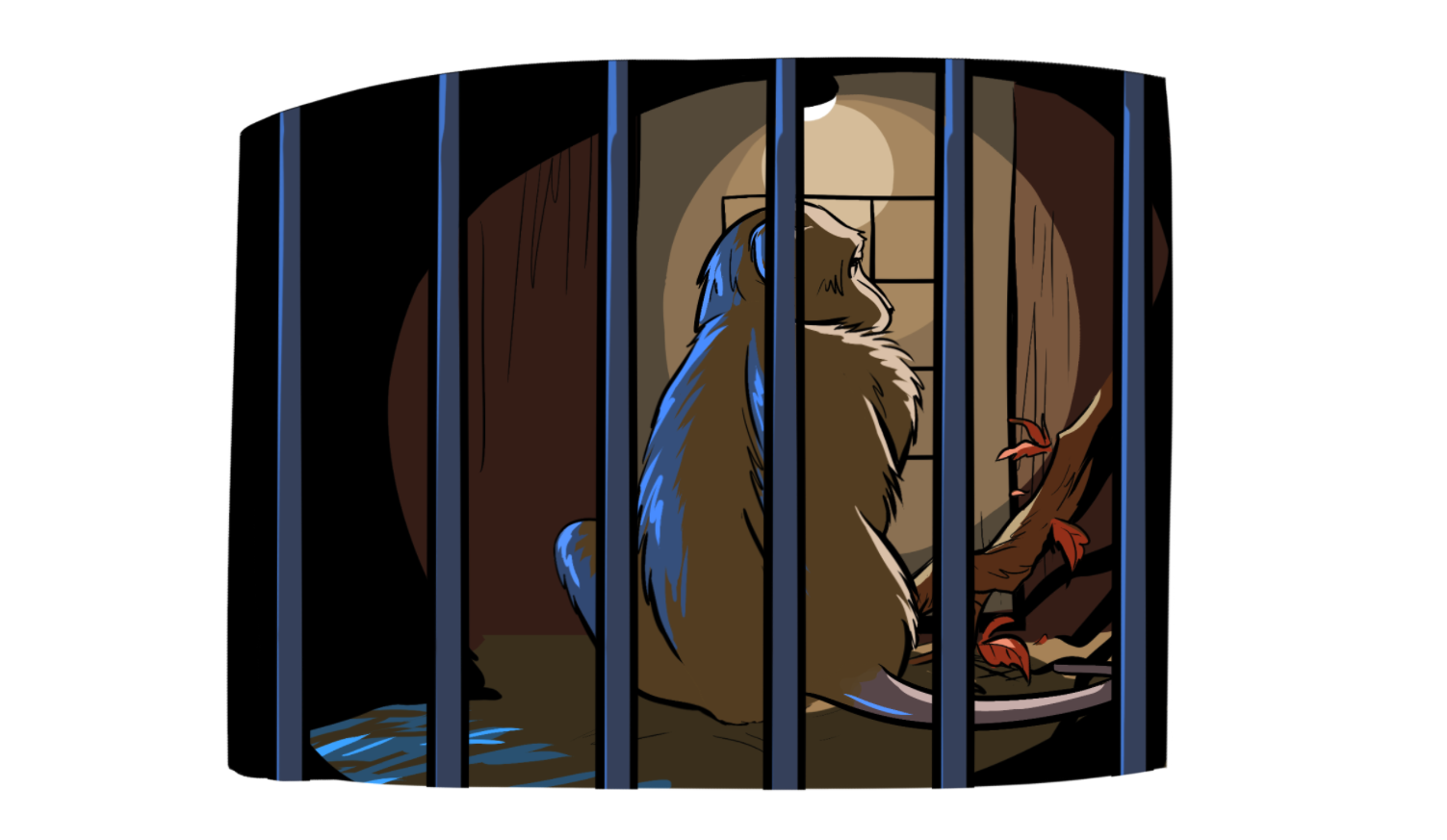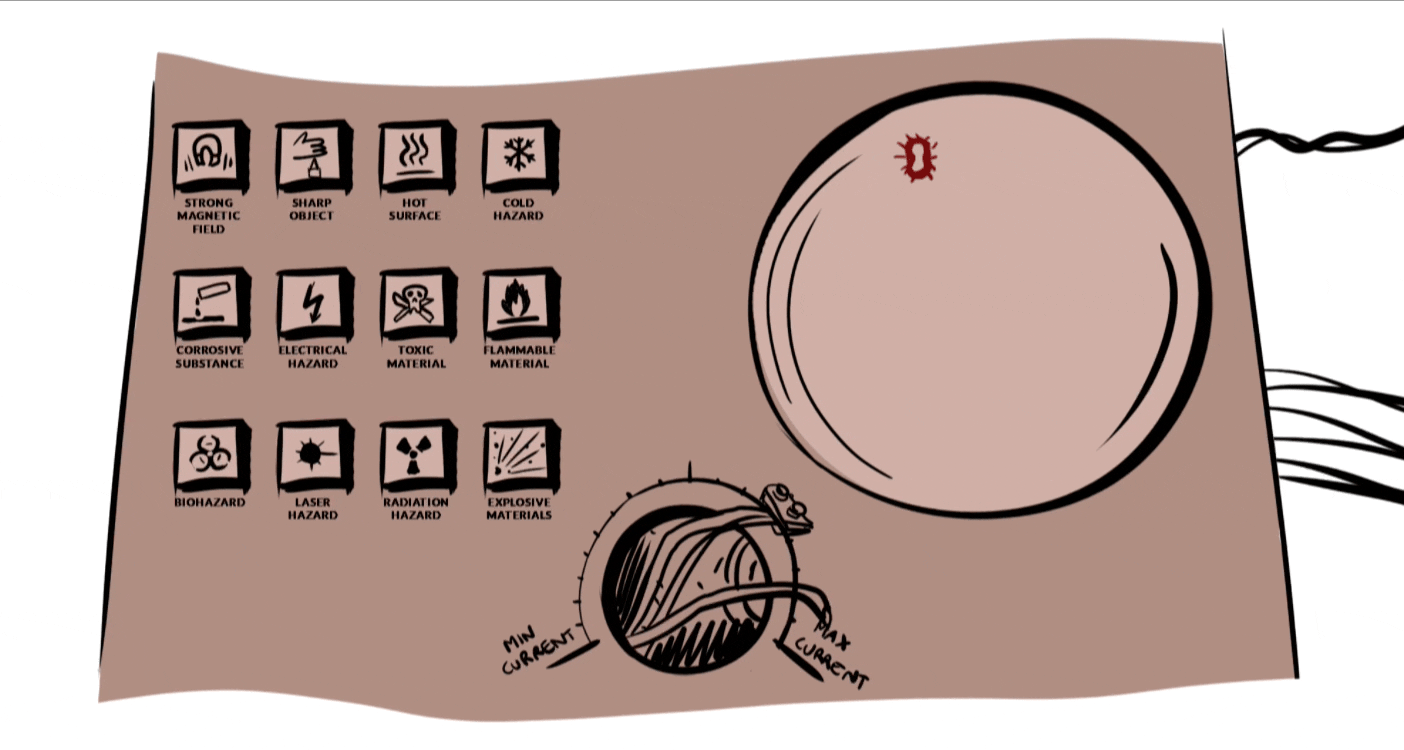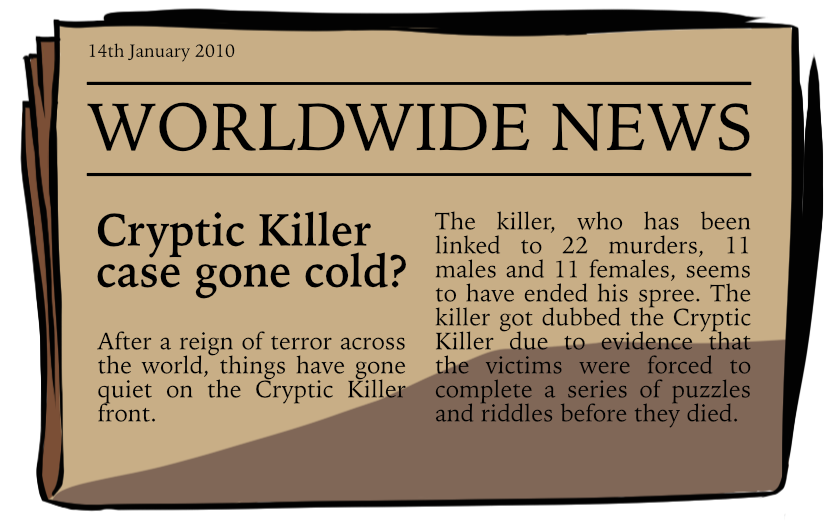
What have we learned from the Parallel Lab playtesting
Our next game Parallel Lab is right around the corner. It's a two-player adventure game inspired by escape rooms. The game continues the story from our first game, "Unboxing the mind of a Cryptic Killer", but it's not required to be familiar with it.
The value of playtesting is tremendous. We believe that playtesting can elevate even a mediocre game to a great one. So in our games, we focus a lot on playtesting to make sure that the game works and feels very well.
Today we finalized another round of playtesting sessions for our newest game: Parallel Lab. Here are things, in random order, that we discovered. Enjoy!
Players ALWAYS need to have a clear goal

On most of the levels, the player's goal is to open the door in the game. The goal is visible to the players right from the beginning. It's in the middle, usually secured with a lock. However, in one of the levels, we break this rule, and the goal is to find a safe. Unfortunately, we haven't communicated it to the players clearly, so they felt lost. They felt like solving the puzzles and exploring the room were pointless because they hadn't had a clear goal.
Fix: we just added a clue on the door that reminds players about the goal and points them in the right direction. That changed the reception from "the worst level" to "absolutely best level!". We haven't changed anything else. We just gave players a clear goal.
Don't assume that there are no bugs if you haven't found any bugs

One of the levels is more complicated than others, so we spent more time on it than any other level. Before giving it to the playtesters we were sure that this one level was the most solid part of the game. We were so wrong… Because of its complexity, it had many problems that we haven't discovered. But playtesters did!
Locks weren't working, and things weren't appearing, clues weren't clear. And, the worst part, there was a way to skip the whole level! Don't underestimate the creativity of the players!
Fix: playtesting discovered the bugs, so we spend even more time fixing all of them. Now the level is excellent.
A clue system is important

First of all, without the clue system, none of the teams would finish the game. Thus, we wouldn't receive complete feedback on the game. Luckily we did the right thing, and before starting any playtesting, we put an extra amount of time to prepare a complete set of tiered hints to guide the players if they're stuck. But what we haven't thought of is that players not only take the clues if they're stuck. They also take the clues if they encounter a technical problem! And when you're playtesting a game, it's 100% that they will. So the only way to prevent the players from being stuck is to have a comprehensive clue system, which saved the sessions.
Second of all, the wording of the clues is equally essential. Our clue system is tiered, so usually, the first clue tells players which items are required to solve the puzzle, and then it goes deeper into nudging players in the right direction. Then, finally, it reveals the solution.
The only way to solve it in one of the puzzles was to complete one other action on the level. This action would trigger the part of the puzzle to start moving and enable players to solve it. Sadly, we forgot to put that information in the clues. So when the players had a look at the clues before completing the necessary action, they received a piece of information that they needed to track the item's movement. But the thing wasn't moving (on purpose!). So they assumed that it was a technical error and jumped to the last clue that gave a solution.
The wording of the clue got players to skip part of the room. And then it frustrated them because they hadn't used some of the clues and thought they were pointless… Yikes!
Fix: we updated the clues, and now it's evident that some other actions need to be completed before. On top of that, we've reorganized the puzzle, so the moving piece is not visible right from the start and is not confusing the players.
Game metrics are often more insightful than player feedback

Depending on the team, you can get very insightful and detailed feedback… or they just wanted to play a free game, so they write a few words and are done with it. You can only do so much to squeeze in some more information from them. However, if the whole playthrough is over 2 hours, even if they're super-verbose, they won't describe every interaction.
That's when the game metrics come into play.
For the playtesting groups, we track their play time, specific actions, clues they took, and errors (both technical and the wrong lock combinations). That information sometimes is more insightful than direct feedback.
One of the common signs of a problem is that most playtesting teams take a clue for a particular puzzle. Our goal, as designers, is to build puzzles that are challenging but don't require hints to solve. If all players take a clue often, there must be something wrong. It can indicate either a technical problem or a lack of understanding of the puzzle.
Give playtesters a time limit

You, as a designer, want the results fast. There is no need to wait a month or two for the players to play your game. Better to get the results fast, fix the game, and continue pushing forward. There are plenty of teams just waiting to play a free game. So just give them a time limit! We selected only the teams that could play over the weekend for the latest session. This allowed us to start the week with a fresh set of things to fix. Yay!
Playtesters should NOT be your friends or family unless you need a solid reassurance

The old rule of playtesting is very true: if you want honest feedback, don't give the game to your friends or family. They'll always say that it's great. But people that don't know you won't be that nice. They don't have any emotional connection with you, so they can and will be honest. One feedback like that is infinitely more valuable than 100 friends playing.
However, giving the game to friends and family can also have a positive side. One thing they'll do is give you positive reassurance. Your game is in a fragile state at this stage, so is your spirit. Positive feedback can boost your confidence and give you the necessary energy to move forward. Use that!
Players loved Parallel Lab!

One of the questions in our survey was, "How would you rate Parallel Lab among other online puzzle games you played?" Most of the players responded that it's better than most games they played, which makes us blush. Especially since the game was still rough and parts were unfinished. I can't wait for the final release!
Final words
Playtesting can be heartbreaking and painful but is essential to make a game great. The line between a puzzle being excellent and frustrating is very thin. But playtesting is the only way to find the balance. It's the only way to make a good game.

Parallel Lab is scheduled for release in April 2022. Sign up for our newsletter to get the release notification first!

